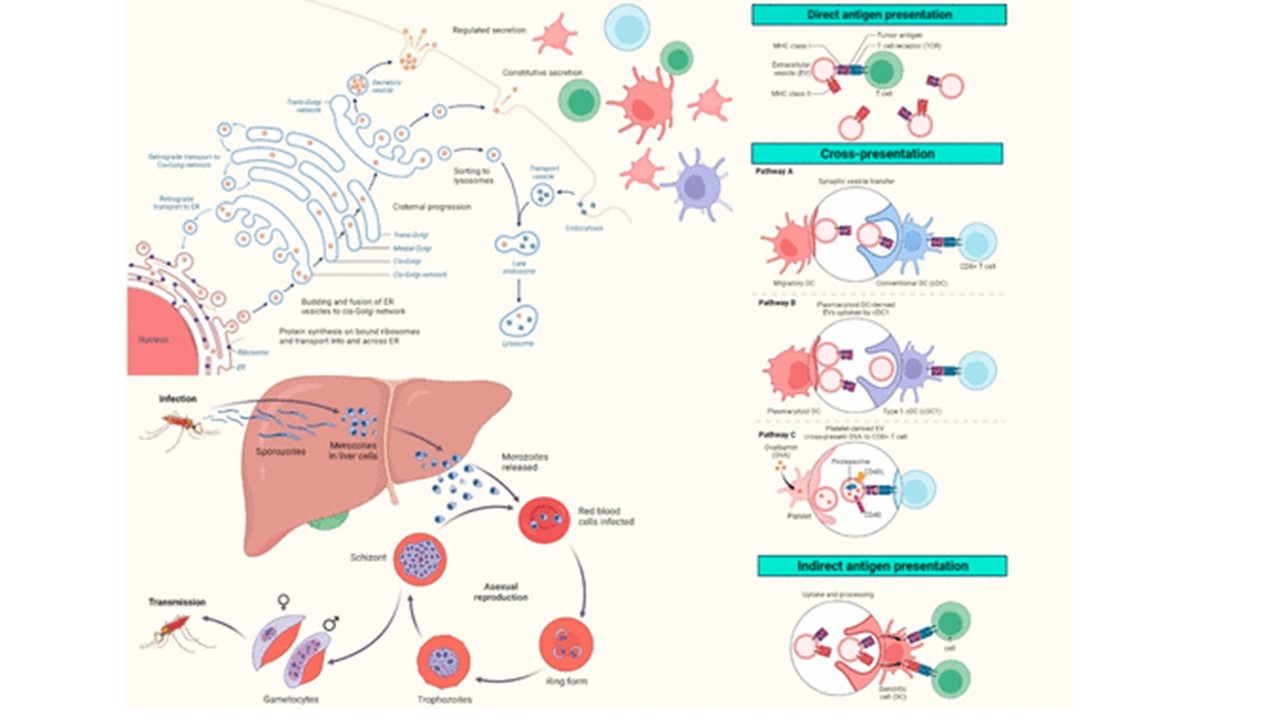In malaria, diverse extracellular vesicles (EVs) play pivotal roles through distinct antigen presentation pathways. Direct antigen presentation involves EVs directly displaying parasite antigens, priming immune responses. Cross-presentation extends this impact, as EVs transfer antigens to different antigen-presenting cells, amplifying immune recognition. Indirect antigen presentation involves EVs modulating host cells to present antigens, influencing immune responses. This intricate interplay shapes the host–pathogen dynamics during Plasmodium infection. Understanding these EV-mediated antigen presentation mechanisms is crucial for unraveling the complexities of malaria pathogenesis and devising targeted therapeutic strategies. The triad of direct, cross-, and indirect antigen presentation by EVs reveals the multifaceted nature of host–immune interactions in response to Plasmodium, offering insights into potential intervention strategies for this globally significant infectious disease. Dey S, Mohapatra S, Khokhar M, Hassan S, Pandey RK. Extracellular Vesicles in Malaria: Shedding Light on Pathogenic Depths. ACS Infect Dis. 2024. PMID: 38320272.
